A TOP kids and young people’s charity has thanked MSP Stuart McMillan for his contribution to a national campaign in Inverclyde.
Barnardo’s Scotland mentioned the SNP man by name ‘for all his help’ as part of their recent ‘Make a Difference Month’.
The charity’s director Martin Crewe, pictured left with the MSP, said: “During the campaign, we saw members and ministers signing up new recruits, selling stock like there was no tomorrow, and even offering opportunities to our young people to go and learn the ins and outs of political office.
“All in all, Make a Difference Month made a massive difference to us, so thank you to Stuart McMillan MSP for all his help in Inverclyde.” A total of 36 MSPs, MPs and local government officials donated their time during the course of the campaign.
Mr Crewe said: “Our local volunteers continue to make a huge difference to the charity’s work through their ongoing dedication. A special thank-you goes to the thousands of volunteers already donating their time, and to the members of the public who expressed interest in volunteering for us during the campaign.
Children are remarkable for their intelligence and ardor, for their curiosity, their intolerance of shams, the clarity and ruthlessness of their vision.
– Aldous Huxley, Fanatically Formative: Successful Learning During the Crucial K-3 Years, SAGE, 12-Jun-2012, p. 113.
Depending on who you ask, the “Named Person” (NP) aspect of Getting It Right For Every Child (GIRFEC) is “both sinister and hugely misguided,” “a giant bureaucracy that actually doesn’t help,” or “eroding the strength of our family life on which any good society depends.” The most vocal critics of NP are the UK’s governing political party, isolated members of the current opposition party, Scotland’s only elected member of the anti-EU party, a conservative Christian group, and John Deighan.
(Of course, it should be remembered that the Children and Young People Act (Scotland) Bill which contained the NP service passed with an impressive 103 votes for, 0 against, and 15 abstentions – all from one party. Not a single MSP voted against the bill. Remember that, next time another party brings up their “opposition” to NP.)
At best, it’s considered unnecessary and unwelcome: at worst, it’s Stalinist-Orwellian-authoritarian-totalitarian nanny-statery. While meaningful and reasonable debate is welcome in regards to the bill, that can only happen if the debate is informed. It does no-one any good to work on false premises.
You would think from the media coverage that the people of Scotland were strongly, resoundingly against the legislation – yet a poll from 15th May 2015 showed 52% of Scots agree with Named Persons, with 28% disagreeing and 19% undecided. As for legality, when the most high-profile critical organisation took the matter to the Court of Session, the response was unequivocal:
The mere creation of a named person, available to assist a child or parent, no more confuses or diminishes the legal role, duties and responsibilities of parents in relation to their children than the provision of social services or education generally.
It has no effect whatsoever on the legal, moral or social relationships within the family. The assertion to the contrary, without any supporting basis, has the appearance of hyperbole.
The matter has now been taken to the UK Supreme Court: given that two further appeals were thrown out, expectations for the accusations to be vindicated should be managed accordingly – after all, it is by no means certain that the UK Supreme Court will decide against the Scottish Government.
Yet more important than all these opinions are those of the people who are best placed to decide – children’s charities, teacher’s associations, adoption & fostering organisations, and other collectives dedicated to children’s welfare. What do they think of the Named Person service?
Aberlour has supported the ‘Named Person’ provisions all along and we welcome Lord Pentland’s verdict. We recognise that this puts into law what should be best practice already and will give every family in Scotland a single point of contact should they ever wish to access support. We’ve worked closely with government to ensure that parents are firmly in control of this relationship and that in the vast majority cases will never have any cause to contact their named person. These changes will ensure that families in difficulty are less likely to slip through the net and instead will be aware that there is someone known to them who is there to help should they need it.
– SallyAnn Kelly, Chief Executive of Aberlour
At Action for Children Scotland, we fully support the Named Person policy and look forward to making sure its roll-out is as smooth as possible. We also want to witness the success the pilot had in the Highlands on a much larger scale. While the Named Person exists to direct vulnerable families to help and support, they will also have a co-ordinating role and will pull all the threads of information together for a child.
After all, “Getting it Right For Every Child” exists to ensure that there is always someone looking out for your child. I firmly believe the Named Person will help get it right for every child in Scotland and standardises something that most parents would hope was happening already.
– Paul Carberry, Action for Children Scotland
Children in care are one of the most vulnerable groups of people in Scotland and this Bill represents the biggest shake-up of the support we give them for nearly twenty years. If passed, it will help transform the lives of looked after children for the better, ensuring that we begin to get it right for every care leaver in Scotland.
– Martin Crewe, Director of Barnardo’s Scotland
Children 1st has continuously supported the introduction of the role of a Named Person for every child across Scotland as a single point of contact for families. We have always viewed it as strengthening existing practice to ensure children get the help they need when they need it.
Our work with families in communities across Scotland has demonstrated the importance of making sure there are accessible ways that vulnerable children are noticed and supported to keep them safe, well and in each and every professionals mind.
– Alison Todd, Chief Executive of Children 1st
In September 2015, the Court of Session concluded that the creation of a named person “no more confuses or diminishes the legal role, duties and responsibilities of parents in relation to their children than the provision of social services or education generally”.
I too have argued, and will continue to argue, that there is no evidence of increased state intrusion into family life. Indeed, this service can prevent children and families being drawn into a formal investigative system by making it easier for issues to be spotted and dealt with effectively early on. We need children’s services that are dedicated to prevention and early intervention, and united around a goal of reducing dramatically the number of children requiring formal measures.
– Jackie Brock, Chief Executive of Children in Scotland
The Christian Institute and others are misinterpreting the legitimate objectives of the Scottish Government in order to further their agenda of promoting the family’s authority over children. One of their central claims is that the proposed “state guardians” (as they call them) risk interfering with a child’s right to express their views and to privacy. Yet it is widely acknowledged that the Named Person Service will not interfere in family matters. Lord Justice General, Lord Carloway categorically states that “it has no effect whatsoever on the legal, moral or social relationships within the family”.
– Colin Young, Senior Policy and Outcomes Officer, Alliance Scotland
Message of support from the ALLIANCE at the issue of the draft Statutory Guidance
Getting it right for every child (GIRFEC)
GIRFEC is a way of working which seeks to deliver a culture shift for Scotland’s children, putting their wellbeing and their needs at the centre of how services are delivered to children and families.
GIRFEC has several interlinked elements to help deliver this culture shift, including a shared understanding of what wellbeing means for children, a co-ordinated planning process for children who require specific support, the “Child’s Plan” and improved communication between children and their parents and public bodies through a single of point of contact, known as the ‘Named Person’.
While we are aware that this final element has proved controversial to some people, we believe that the criticisms raised against it are inaccurate and unjustified.
We believe that the Named Person can support families and practitioners to work in partnership, so that the voice of children is heard and that plans to support them take account of the child’s and parent’s lived experience.
I want to highlight the following points in particular;
- Parents of disabled children tell us that it is possible for between twenty and a hundred professionals to be involved in supporting their child and family. They say that for them, the coordination provided by a Named Person is essential.
The Named Person will connect the family more effectively to a range of services and professionals when they are needed without excessive red tape or delay.
- Parents have the primary role and responsibility for ensuring the wellbeing of their children. GIRFEC and the introduction of the Named Person service do not change that.
The role of the Named Person is different from the role that parents play. Named Persons’ main responsibilities include providing information and advice and where required working with parents and families to assess the need for additional support for children and families and helping to organise that support, in collaboration with parents and children and other statutory and third sector organisations.
- The Named Person role reflects what is already known to be good practice. Named Persons will be staff members of universal public services who already have a duty of care towards a child through these universal services (e.g. health visitor or senior teacher).
Making the service available on a statutory footing will promote consistency of approach across the country. Staff members who are assigned the Named Person role will be supported by their organisations who have the legal responsibility to make the service available. These staff members will be known to most parents and children.
Towards Implementation
The ALLIANCE welcomed the recent Court of Session ruling in support of the Named Person functions. We believe that it is now time for everyone to support the implementation of the GIRFEC approach across Scotland in order that every child, young person or family can access support from the Named Person service and have a Child’s Plan if and when they need to do so.
We also welcome the publication of the Scottish Government’s draft Statutory Guidance which supports those organisations which will have responsibility for making the Named Person service available and for the Child’s Plans. The guidance reinforces the guiding principle that children, young people and families lie at the heart of the approach. The Scottish Government’s commitment to co-produce Practice Materials which will help drive consistency in the application of the GIRFEC approach is especially welcomed. The ALLIANCE will offer support to the Scottish Government in producing good practice materials. We are proud of our collaboration to date. Working with the Scottish Council on Deafness, for example, we have launched a series of British Sign Language film clips, to help deaf children and their families to get to know about GIRFEC. We have also produced a series of easy read guides which can be found on our website, http://www.alliance-scotland.org.uk/what-we-do/our-work/children-and-young-people/
By continuing to work with the Scottish Government and other third sector and statutory partners to co-produce practice support material, the ALLIANCE will play our part to ensure that the GIRFEC approach is rolled out across Scotland, informed by the lived experience of disabled children and young people, and those living with long term conditions and their families. We will continue to ensure that families have the information they need in order that they remain at the heart of decision making about the support their children need.
– Ian Welsh, Chief Executive, Alliance Scotland
NSPCC Scotland support the aspiration embedded in the Named Person provision within the Children and Young People (Scotland) Act as we believe that a co-ordinated system of assessment and accountability will help embed prevention through early detection.
– NSPCC Scotland’s consultation response
Colin Beattie: A couple of groups have been particularly critical of the named person service – the Schoolhouse Home Education Association an the Scottish Parent Teacher Council in particular. They have said that the named person proposal seeks to usurp the role of the parent. What do you feel about that? Do you think that that is accurate?
Clare Simpson: I do not feel that that is accurate at all. Parent’s rights and responsibilities are firmly enshrined in law.
The GIRFEC guidance says that the named person is the first point of contact. We have regularly carried out MORI polls of parents that are representative of parents in Scotland. I think that it was the 2010 MORI poll that said that 72 per cent of parents did not know where to go for help, and the figure rose to 84 per cent in deprived areas. I therefore think that there is a real need for parents to know where to go for help.
The system is also one that all parties have agreed to and which we have been working to delvier throughout Scotland.
– Clare Simpson, Project Manager of Parenting Across Scotland
Quarriers supports the inclusion of the Named Person Service in the guidance.
– Quarriers consultation response
We have confidence in in the named person model and the protection and support it will offer to young people and their families across Scotland.
– Theresa Fyffe, Director of Royal College of Nursing Scotland
Again, I echo what Clare Simpson has said in relation to the named person. Save the Children sees the approach as an extra support for families, both children and parents.
In the consultation on the national parenting strategy, some of the key issues that parents raised were on lack of communication and not knowing who to turn to if they need support. There is a very complex service landscape in terms of children and family support, and support to navigate through it is helpful for parents.
There is evidence, particularly from the Highland model, of the impact of using the named person and how that has benefited children and families. The evaluations show that parents, as well as children, have valued the extra support of a first point of contact, as somebody with whom they can raise issues at an early stage and who can support them to get a clearer idea of what is going on with their child or with any support that they might need. I therefore urge the committee, as Clare has already said, to look at the example from Highland and how the system has worked in practice.
– Claire Telfer, Policy & Advocacy Manager for Save the Children
We know that mothers, fathers and carers are with a few exceptions, the best people to raise their children. This proposed legislation supports families, providing improved access to services while maintaining parental rights and responsibilities.
A Named Person helps children and families get the right support at the right time from the right people. It does not replace or change the role of parents and carers, or undermine families. The ‘Named Person’ approach is not new. It is already operating across Scotland. However, the legislation is embedding best practice into law so that children and young people are receiving the best support and not left to the vagaries of different parts of Scotland.
– Seamus Searson, General Secretary of Scottish Secondary Teachers Association
The Scottish Youth Parliament supports the inclusion of a provision of a point of contact for children, young people and families through an appointed Named Person.
– Scottish Youth Parliament Education & Culture Committee
Where the named person can really make a difference is perhaps in the case of a child with a disability and the myriad of services parents may need help to co-ordinate; or the child struggling to learn whose parents are not sure how to get help or a diagnosis for them; or the child who is a carer for their parent who might not realise that they could get a bit of extra help; or the child recently arrived from Syria, starting a new life in a new place after a traumatic journey.
These are the areas where positive outcomes can be achieved for children – where this legislation can make a real difference.
The BBC recently took an in-depth view at Highland where the named person has been piloted for some time. The programme showed how positive the pilot has been.
It is not about child protection or interference or the nanny state. It is about supporting children and families at the right time to prevent crisis and make sure they don’t struggle unnecessarily. Who could argue with that?
– Alistair Gaw, president of Social Work Scotland
Together welcomes the reference to the Common Core (which is underpinned by the General Principles of the UNCRC) within the draft guidance and the decision for it to be ‘at the heart’ of training of Named Persons. The Common Core describes the skills, knowledge and understanding, and values that everyone should have if they work with children, young people and their families.
To ensure that the GIRFEC approach meets the needs of all children and young people, it will be necessary for all practitioners from local authorities, health boards, relevant services and the third sector to receive training underpinned by the Common Core.
Together recommends that every person working with children and young people, as well as those supporting these practitioners (such as those working alongside a Named Person) should be trained using the Common Core and that this document should underpin and help to develop all local practice guidance for these parts of the Children and Young People (Scotland) Act. This would help to fulfil the Scottish Government’s duty under Article 42 of the UNCRC to raise awareness and understanding of children’s rights and as enshrined in Part 1 of the Children and Young People (Scotland) Act.
– Together Scotland: Scottish Alliance for Children’s Rights’ consultation response
Dear Sir or Madam
Supreme Court must throw out appeal against Named Person
In the week that the Supreme Court of the United Kingdom will hear the arguments presented by those opposed to the national roll out of the Named Person service, we, as Scotland’s leading children’s charities and public sector stakeholders, hope the court dismisses this case as other courts have on two previous occasions.
The campaign against the Named Person provisions of the Children and Young People (Scotland) Act, has sought to portray the policy as a ‘State Guardian’ for every child and a material erosion of family privacy. This is simply not the case.
The introduction of the Named Person was a direct policy response to requests from parents for a simplified approach to accessing support when they need it. It represents a single point of contact for any family looking for help or access to public services. The Named Person will also coordinate action when signs emerge that a child or family might be in particular difficulty.
The people charged with this role, be they health visitors or promoted teachers, are already looking out for our children – we would expect nothing less. They already handle sensitive information and offer support when needed. They don’t snoop, or collect information unnecessarily nor do they share information inappropriately. That won’t change when the policy is rolled out. The new legislation will simply codify best practice and enhance the support available to families.
As Lord Carloway put it, when he threw out the appeal against the Named Person in September last year: “Its policy is to put the best interests of every child at the centre of decision-making… [and] to prevent some of the tragedies which have occurred in the recent past.”
Whilst we hope their legal challenge will fall once again, we will seek to work with those who are concerned about the policy and how it may be implemented to ensure the policy is as workable as possible and that their concerns are not realised.
– Letter to the UK Supreme Court signed by representatives of 12 charities, many cited above, and also including Satwat Rahman (Chief Executive of One Parent Families Scotland) and Maggie Simpson (Chief Executive of the Scottish Child Minding Association)
We have worked hard to listen to those who have anxiety about this policy. We’ve met with parents from the ‘No2NamedPerson’ lobby and have channelled their views and concerns into the policy and guidance we have developed in co-production with Scottish Government. This has led to some demonstrable shifts in the policy.
While the Named Person exists to direct vulnerable families to help and support, they will also have a co-ordinating role and will pull all the threads of information together for a child, about whom a worrying picture has begun to emerge. That’s it. GIRFEC exists to ensure that there is always someone looking out for your child. This just standardises something that most parents would hope was happening already.
– “In Support of the Named Person,” signed by several charities including CELSIS, Mentor, Who Cares? Scotland, and YouthLink Scotland
The Scottish Police Federation supports the Named Person proposals.
We believe it will help keep children safer as a range of professionals (including frontline & community police officers) working together offers opportunities to pick up potential problems at an earlier stage; and by doing so can help to keep more children out of the justice system.
The evidence from the Highland council shows us that GIRFEC, through more efficient processes and working can help free up police time and improve outcomes for children. These are things we believe everyone would support.
– Calum Steele, General Secretary of the Scottish Police Federation
That’s the support the Named Person service has.
Won’t somebody PLEASE think of the children!?
So spaketh Helen Lovejoy of The Simpsons, encapsulating the histrionic hand-wringing of conservative adults who object to obscenity, blasphemy, or anything otherwise deemed offensive by citing concern for “the children.” It’s naturally emotive and contentious, which is why it’s such a dangerous logical fallacy to use.
Yet there is a point in there, often obscured, that has great value – a consideration for what children think. The UN Committee on the Rights of the Child, and the Children’s Charter both recognise a child’s right to voice their opinions and wishes. The focus from so many critics of the Named Person service is how it infringes upon the rights of the parent, that it’s an intrusion unto their entitlement to raise their child however they see fit without “interference” from an overbearing state – there is rarely discussion of the rights or wishes of the child. The Scottish Youth Parliament’s consultation suggests that young people support the Named Person service.
The Scottish Government have recognised the capabilities of 16 and 17-year-olds, and so they are part of the election franchise, just as they were during the independence referendum – something which UK’s governing party has consistently opposed. Thinking of the children is not a bad thing to do – so long as you are willing to listen.
I AM proud of the work that the parliament undertook in introducing the 2014 Children and Young People Act.
It is unfortunate that many of the excellent provisions in the act are being overshadowed to an extent by the misinformation about the Named Person, which opponents are attempting to quash by taking it through the law courts.
The Getting It Right For Every Child (GIRFEC) approach puts the best interests of the child at the heart of decision making, to ensure the child’s wellbeing.
The named person legislation does not make ‘snoopers’ out of teachers, health visitors etc.
It simply enables their pastoral and community responsibilities regarding child protection and wellbeing in law.
This is to ensure that children who need help receive help and children who already have multi-agency interventions aren’t lost in a back and forth between each agency.
It is far better than the alternative, which is either strengthening the powers and scope of child protection officers or allowing more children who are being abused or neglected to fall through the cracks.This is why it is supported by child protection agencies, children’s charities and other organisations that actually work with and help abused and neglected children on a daily basis.
When tragedies happen, subsequent reviews always point to services not being good enough at sharing information.
As Martin Crewe of Barnardo’s said: “Children are not born with an ‘at risk’ label on their forehead.”
We need to get better at recognising the warning signs, because even one failure is unforgivable.
– Stuart McMillan’s Holyrood message, Greenock Telegraph
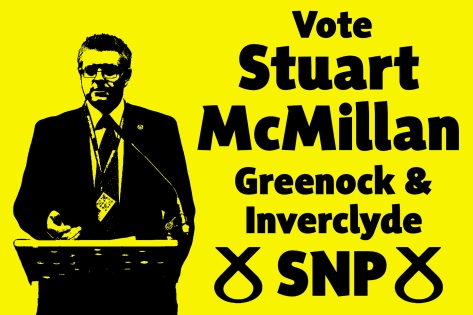
Stuart’s website
Stuart’s Twitter
Stuart’s Facebook page and profile
Stuart’s fundraiser (five days left!)

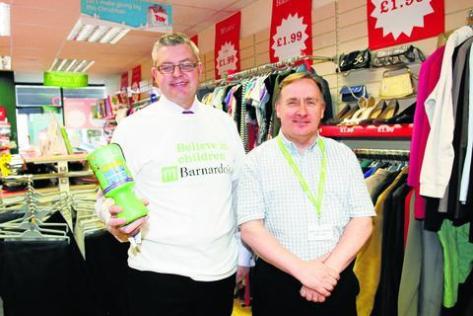

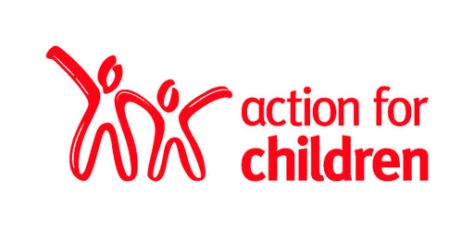
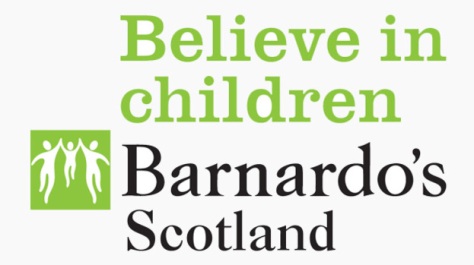



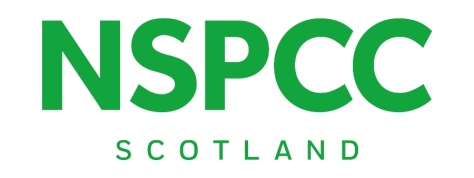
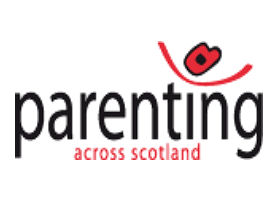
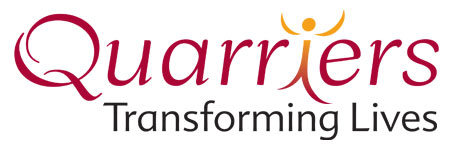
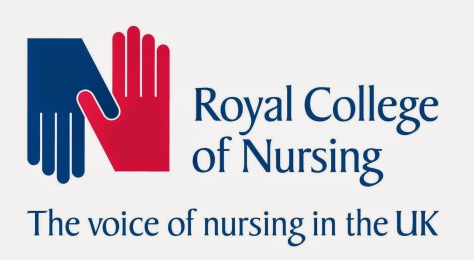


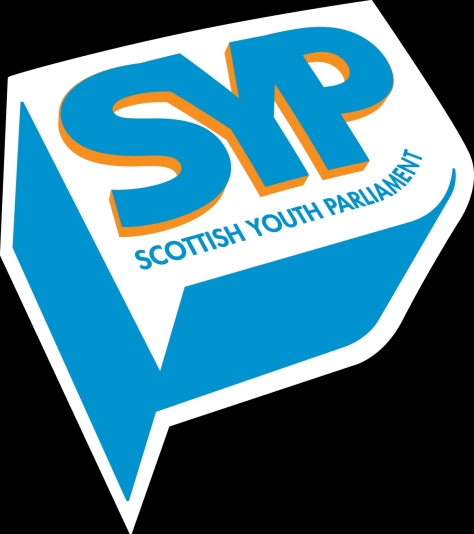

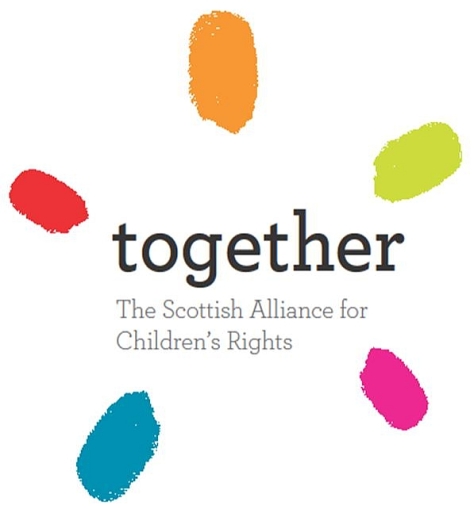


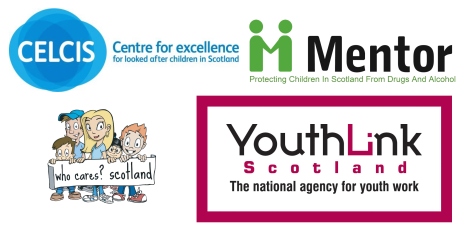
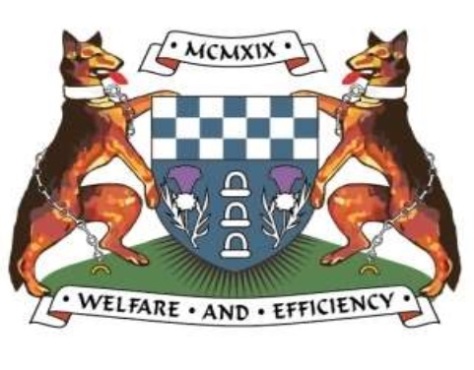
Great to see all these respected organisations, and their quotes, collected here. Don’t think anyone has bothered to do that, so it’s good to read them all.
[…] March – Think of the Children. I have a bit of a hair trigger when it comes to discussion on child safety, and the manufactured […]